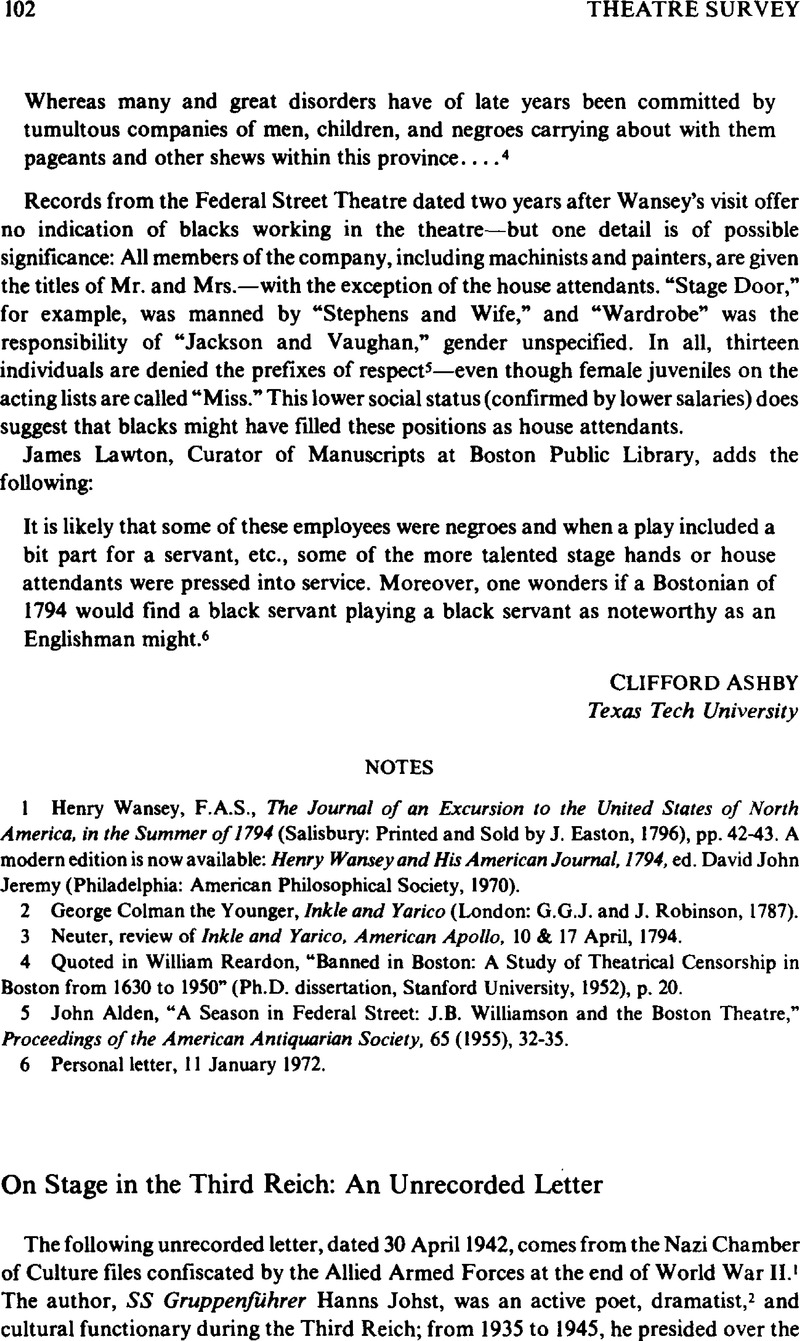No CrossRef data available.
Article contents
On Stage in the Third Reich: An Unrecorded Letter
Published online by Cambridge University Press: 07 July 2009
Abstract

- Type
- Notes and Documents
- Information
- Copyright
- Copyright © American Society for Theatre Research 1987
References
Notes
1 Records of the Reich Culture Chamber that I have consulted are located in The Document Center, West Berlin.
2 As a dramatist, Hanns Johst was best known for his propaganda play Schlageter, which premiered in Berlin's Prussian State Theater on the occasion of Hitler's birthday, 20 April 1933. Schlageter contains the often-quoted line, “Every time I hear the word ‘culture,’ I release the safety-catch of my revolver.”
3 According to the files of the Reich Culture Chamber, none of the four actresses was a member of the Nazi Party.
4 Information relating to the repertoire of the Deutsches Theater for the 1941–42 season is from the archives of the Deutsches Theater in East Berlin. My personal interview with Eva Lissa took place in West Berlin, 17 December 1982.
5 Other leading figures in the Nazi Party hierarchy who chose actresses as wives or mistresses during the Third Reich include Wolf von Helldorf, Police Commissioner of Berlin (Else Elster), Hans Hinkel, General Secretary of the Reich Culture Chamber (Anita Spada), Dr. Robert Ley, founder of the German Labor Front (Inga Hansen), and Julius Streicher, editor of the anti- Semitic newspaper Der Stürmer (Anni Seitz).
6 Trevor-Roper, H.R., ed., The Bormann Letters: The Private Correspondence Between Martin Bormann and His Wife from January 1943 to April 1945, trans, Stevens, R.H. (London: Weidenfeld and Nicolson, 1954)Google Scholar, xx. In another letter to his wife, dated 5 February 1945, shortly before Germany's collapse, Bormann stated that “A victory for Bolshevism and Americanism would mean not only the extermination of our race, but also the destruction of everything that its culture and civilization has created. Instead of the ‘Meistersinger’ we should see Jazz triumphant, and … ‘Käthchen von Heilbronn’ would have to yield pride of place to the pornographic skit” (173).




